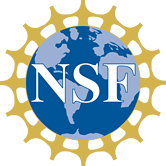A J-DSP Phase 3 training and assessment workshop is being organized.
The workshop will take place at the Arizona State University Goldwater Center (room
GWC 487). [Photo
Gallery]
Date: 8th November, 2013.
Time: 2 pm - 5 pm
Participants will be provided with Android galaxy tablets
to perform simulations detailed in the exercise document.
Refreshments included.
The objective of this workshop is to provide hands-on experiences with AJDSP,
a DSP simulation application built for the Android platform.
The exercise problems are directed towards providing an overview of the role of DSP in mobile health monitoring.
Signals such as Accelerometer, Photoplethysmogram (PPG), and Electrocardiogram (ECG) are analyzed and processed.
Basic features are extracted and parameters such heart rate, oxygen saturation, and step count are estimated.
Agenda:
|
Introduction to
AJDSP: Prof. Andreas Spanias |
|
Sensor signal acquisition and processing: Deepta Rajan
|
| |
Hands-on
workshop with Android devices
|
| |
Assessments
|
|
Closing remarks
|
Objectives:
-
Provide an overview of physiological signals.
- Provide a platform for data visualization.
- To collect sensor data for analysis and algorithm refinement.
- Provide a broad perspective of the impact of mobile devices in health monitoring and context-aware applications.
- Understand the process flow in a DSP system starting from the sensing level to building real-world applications.
- To evaluate the usefulness of AJDSP as a learning tool.
- To collect student feedback.
Audience:
The workshop is intended for students in Biomedical, Electrical, and Computer Science Engineering. Students from other engineering departments with an interest in signal and data analysis are also welcome to participate.
Expected Outcome:
Participants will be able to use the AJDSP software and design their own DSP based simulations.
Participants will have gained an insight into the significance of DSP and the role of mobile devices in providing non-invasive healthcare.
Organizers:
| Prof. Andreas Spanias, Arizona State University |
| Dr. Mahesh Banavar, Arizona State University |
| Deepta Rajan, Arizona State
University |
The event is co-sponsored bythe NSF Phase 3 grant award 0817596 (DWS 0379) and the SenSIP Center, Arizona State University.
|


